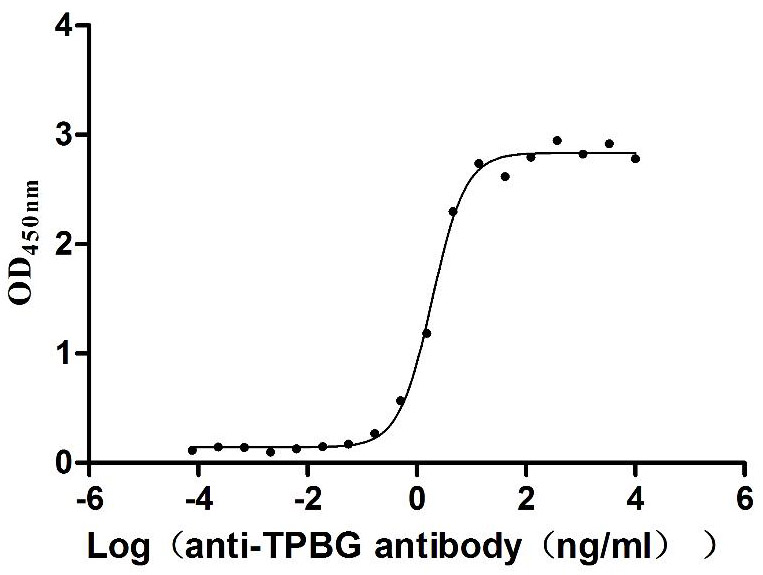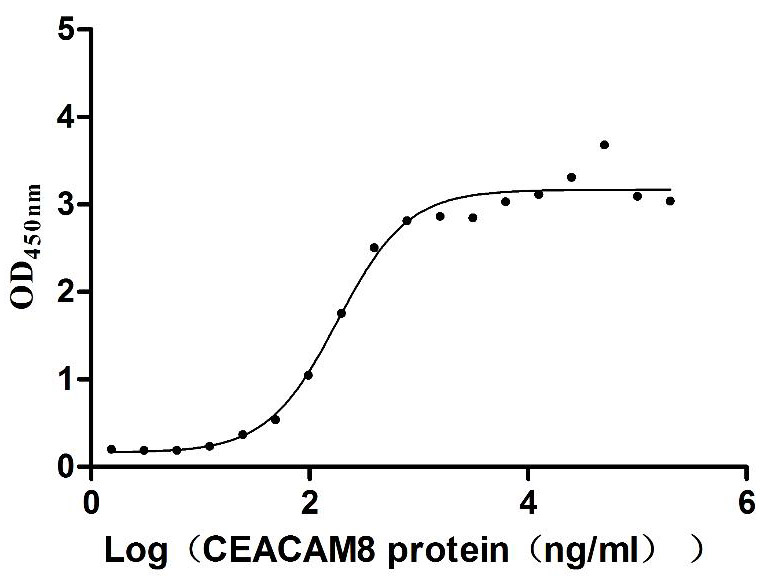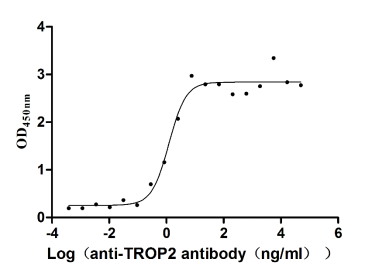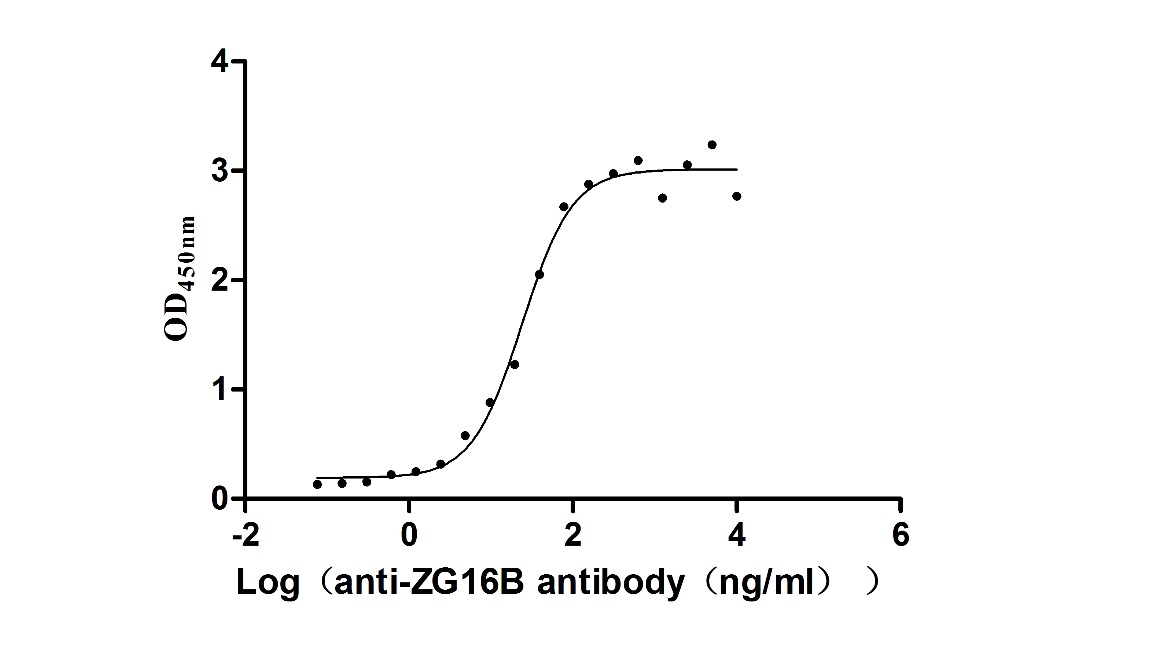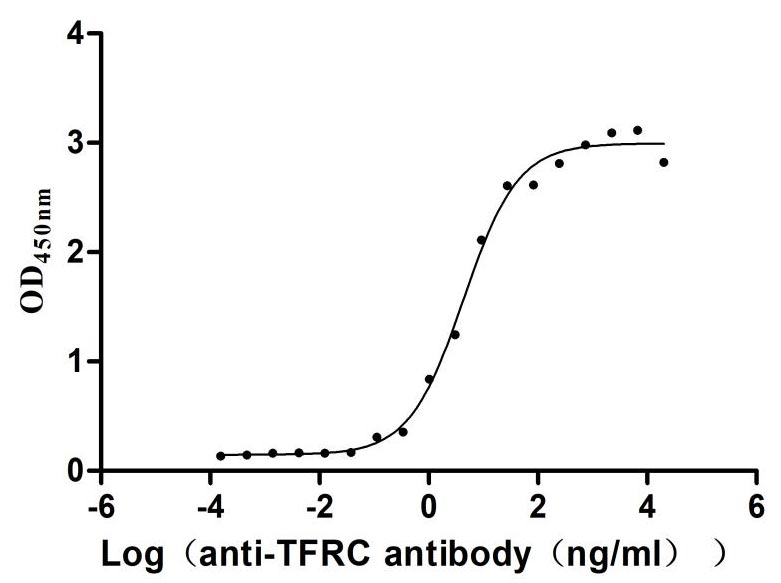Recombinant Human FK506-binding protein-like (FKBPL)
-
中文名稱:人FKBPL重組蛋白
-
貨號:CSB-YP883441HU
-
規(guī)格:
-
來源:Yeast
-
其他:
-
中文名稱:人FKBPL重組蛋白
-
貨號:CSB-EP883441HU-B
-
規(guī)格:
-
來源:E.coli
-
共軛:Avi-tag Biotinylated
E. coli biotin ligase (BirA) is highly specific in covalently attaching biotin to the 15 amino acid AviTag peptide. This recombinant protein was biotinylated in vivo by AviTag-BirA technology, which method is BriA catalyzes amide linkage between the biotin and the specific lysine of the AviTag.
-
其他:
-
中文名稱:人FKBPL重組蛋白
-
貨號:CSB-BP883441HU
-
規(guī)格:
-
來源:Baculovirus
-
其他:
-
中文名稱:人FKBPL重組蛋白
-
貨號:CSB-MP883441HU
-
規(guī)格:
-
來源:Mammalian cell
-
其他:
產(chǎn)品詳情
-
純度:>85% (SDS-PAGE)
-
基因名:FKBPL
-
Uniprot No.:
-
別名:DIR1; FK506 binding protein like; FK506-binding protein-like; Fkbpl; FKBPL_HUMAN; NG7; OTTHUMP00000029170; WAF 1/CIP1 stabilizing protein 39; WAF-1/CIP1 stabilizing protein 39; WISP39
-
種屬:Homo sapiens (Human)
-
蛋白長度:full length protein
-
表達區(qū)域:1-349
-
氨基酸序列METPPVNTIG EKDTSQPQQE WEKNLRENLD SVIQIRQQPR DPPTETLELE VSPDPASQIL EHTQGAEKLV AELEGDSHKS HGSTSQMPEA LQASDLWYCP DGSFVKKIVI RGHGLDKPKL GSCCRVLALG FPFGSGPPEG WTELTMGVGP WREETWGELI EKCLESMCQG EEAELQLPGH SGPPVRLTLA SFTQGRDSWE LETSEKEALA REERARGTEL FRAGNPEGAA RCYGRALRLL LTLPPPGPPE RTVLHANLAA CQLLLGQPQL AAQSCDRVLE REPGHLKALY RRGVAQAALG NLEKATADLK KVLAIDPKNR AAQEELGKVV IQGKNQDAGL AQGLRKMFG
-
蛋白標簽:Tag?type?will?be?determined?during?the?manufacturing?process.
The tag type will be determined during production process. If you have specified tag type, please tell us and we will develop the specified tag preferentially. -
產(chǎn)品提供形式:Lyophilized powder
Note: We will preferentially ship the format that we have in stock, however, if you have any special requirement for the format, please remark your requirement when placing the order, we will prepare according to your demand. -
復溶:We recommend that this vial be briefly centrifuged prior to opening to bring the contents to the bottom. Please reconstitute protein in deionized sterile water to a concentration of 0.1-1.0 mg/mL.We recommend to add 5-50% of glycerol (final concentration) and aliquot for long-term storage at -20℃/-80℃. Our default final concentration of glycerol is 50%. Customers could use it as reference.
-
儲存條件:Store at -20°C/-80°C upon receipt, aliquoting is necessary for mutiple use. Avoid repeated freeze-thaw cycles.
-
保質(zhì)期:The shelf life is related to many factors, storage state, buffer ingredients, storage temperature and the stability of the protein itself.
Generally, the shelf life of liquid form is 6 months at -20°C/-80°C. The shelf life of lyophilized form is 12 months at -20°C/-80°C. -
貨期:Delivery time may differ from different purchasing way or location, please kindly consult your local distributors for specific delivery time.Note: All of our proteins are default shipped with normal blue ice packs, if you request to ship with dry ice, please communicate with us in advance and extra fees will be charged.
-
注意事項:Repeated freezing and thawing is not recommended. Store working aliquots at 4°C for up to one week.
-
Datasheet :Please contact us to get it.
相關(guān)產(chǎn)品
靶點詳情
-
功能:May be involved in response to X-ray. Regulates p21 protein stability by binding to Hsp90 and p21.
-
基因功能參考文獻:
- This study identified two low-frequency nonsynonymous variants at FKBPL (rs200847762, OR = 0.34, 95% CI = 0.20-0.57, P = 4.31 x 10-5) and ARPC1B (rs1045012, OR = 0.56, 95% CI = 0.43-0.74, P = 4.30 x 10-5) associated with breast cancer risk. PMID: 27479355
- The data suggests a role for FKBPL as a prognostic factor for BCSS, with the potential to be routinely evaluated within the clinic. PMID: 25906750
- WISp39 preferentially interacts with phosphorylated Coronin 1B, allowing it to complex with Slingshot phosphatase to dephosphorylate and activate Cofilin. PMID: 25800056
- FKBPL is an important regulator of developmental and pathological angiogenesis. PMID: 25767277
- high levels of FKBPL and RBCK1 correlated with increased patient survival, whereas high RBCK1 predicted for a poor response to tamoxifen. PMID: 23912458
- FKBPL and and its peptide derivative, AD-01 regulate expression of CD44. PMID: 23457460
- Genome-wide association study of age-related macular degeneration identifies TNXB, FKBPL and NOTCH4 as candidate susceptibility genes. PMID: 22694956
- Alterations in the gene for FKBPL in azoospermic patients. PMID: 20210997
- Findings suggest that FKBPL may have prognostic value based on its impact on tumor proliferative capacity and sensitivity to endocrine therapies, which improve outcome. PMID: 20103631
- Results demonstrate the importance of posttranslational stabilization of p21 protein by WISp39 in regulating cellular p21 activity. PMID: 15664193
- FKBPL can be classed as a new member of the FKBP protein family with a role in steroid receptor complexes and signaling. PMID: 18669603
顯示更多
收起更多
-
組織特異性:Ubiquitously expressed with higher levels in testis.
-
數(shù)據(jù)庫鏈接:
Most popular with customers
-
Recombinant Human Prolactin receptor (PRLR), partial (Active)
Express system: Mammalian cell
Species: Homo sapiens (Human)
-
Recombinant Human Interleukin-17A (IL17A) (T26A) (Active)
Express system: Baculovirus
Species: Homo sapiens (Human)
-
Recombinant Macaca fascicularis Trophoblast glycoprotein (TPBG), partial (Active)
Express system: Mammalian cell
Species: Macaca fascicularis (Crab-eating macaque) (Cynomolgus monkey)
-
Recombinant Human Carcinoembryonic antigen-related cell adhesion molecule 6 (CEACAM6) (Active)
Express system: Mammalian cell
Species: Homo sapiens (Human)
-
Recombinant Human Tumor-associated calcium signal transducer 2 (TACSTD2), partial (Active)
Express system: Mammalian cell
Species: Homo sapiens (Human)
-
Recombinant Macaca fascicularis zymogen granule protein 16 homolog B (ZG16B) (Active)
Express system: Mammalian cell
Species: Macaca fascicularis (Crab-eating macaque) (Cynomolgus monkey)
-
Recombinant Human Transferrin receptor protein 1 (TFRC), partial (Active)
Express system: Mammalian cell
Species: Homo sapiens (Human)
-
Recombinant Human C-C chemokine receptor type 6(CCR6)-VLPs (Active)
Express system: Mammalian cell
Species: Homo sapiens (Human)


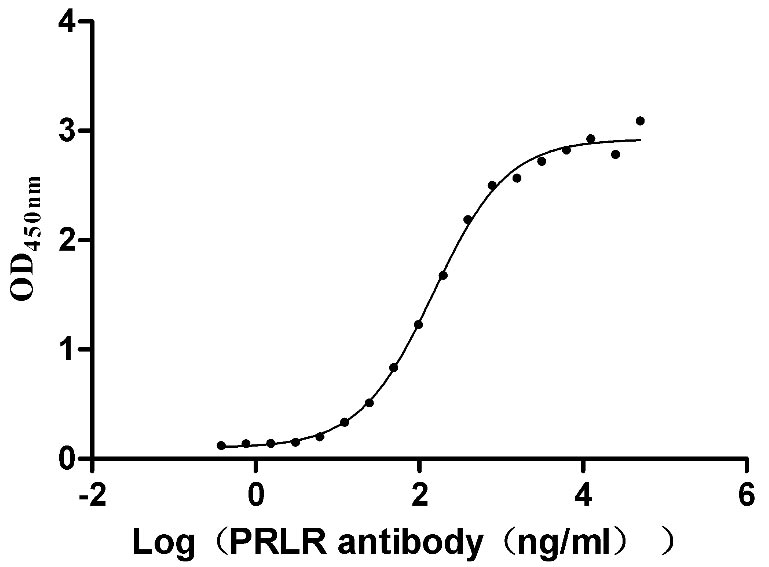
-AC1.jpg)
